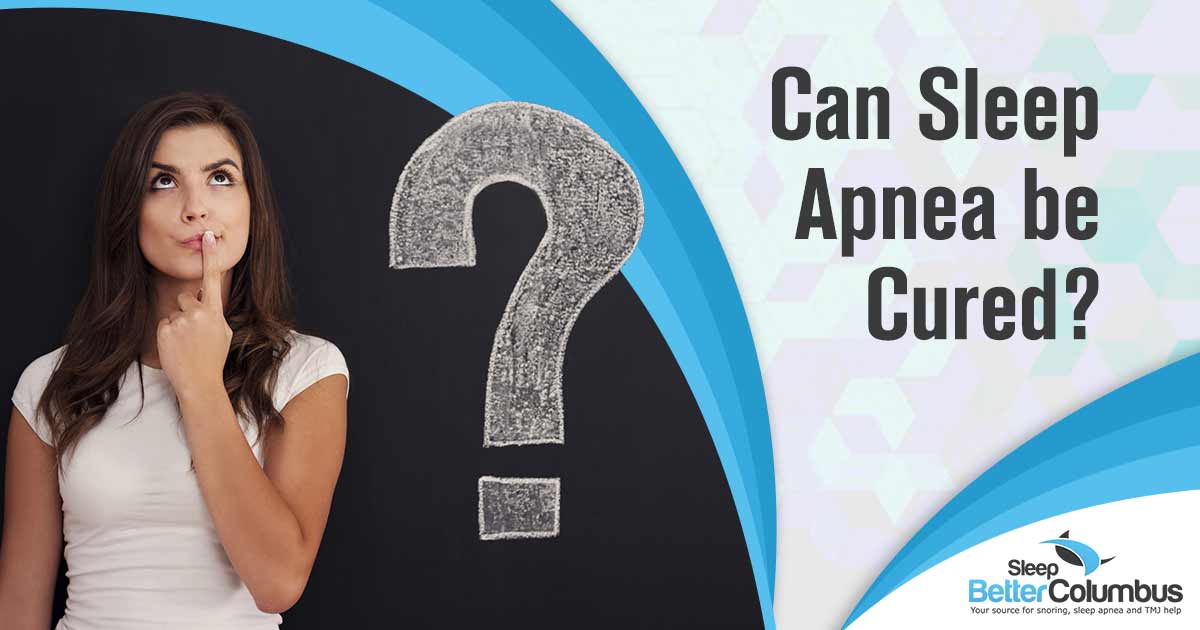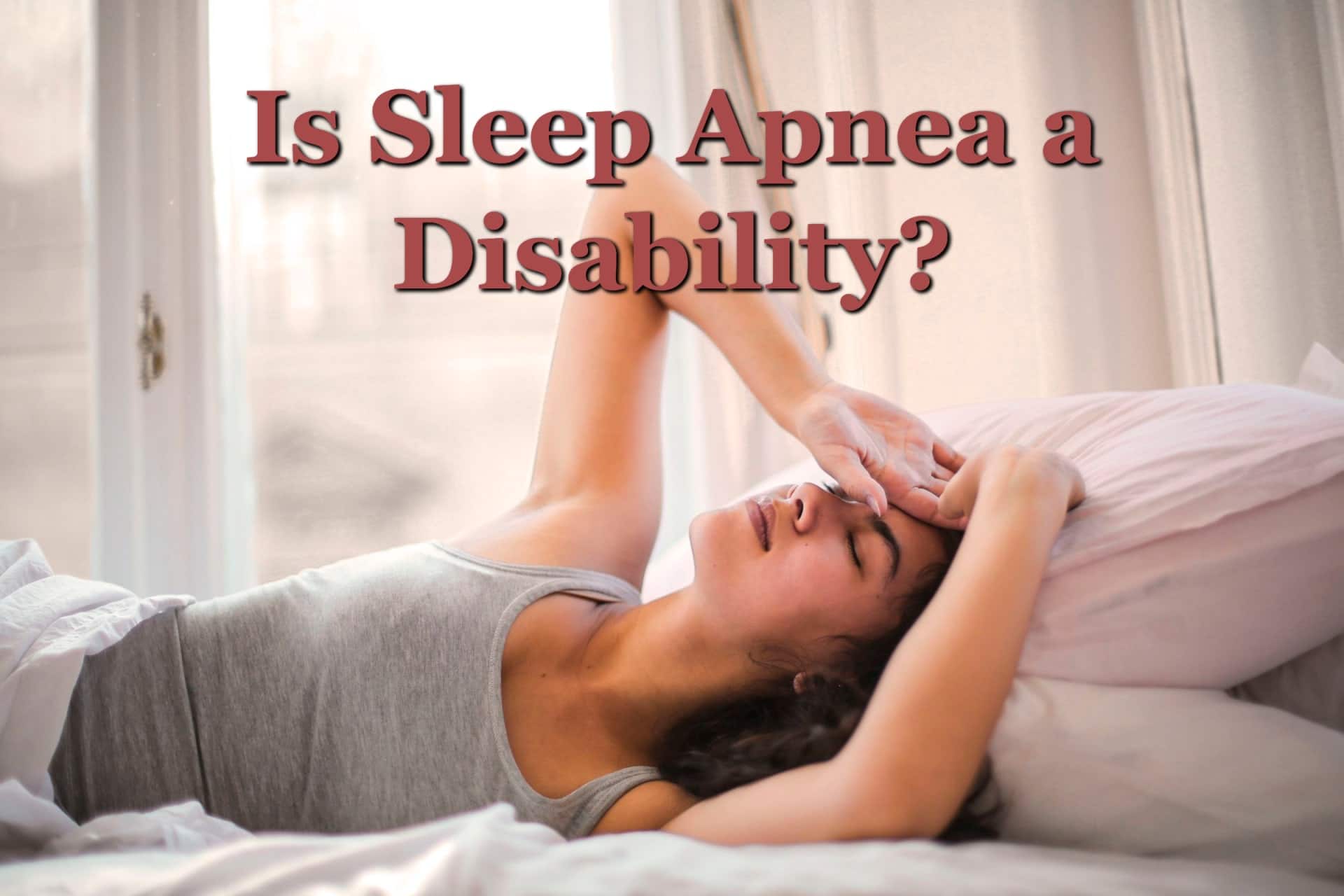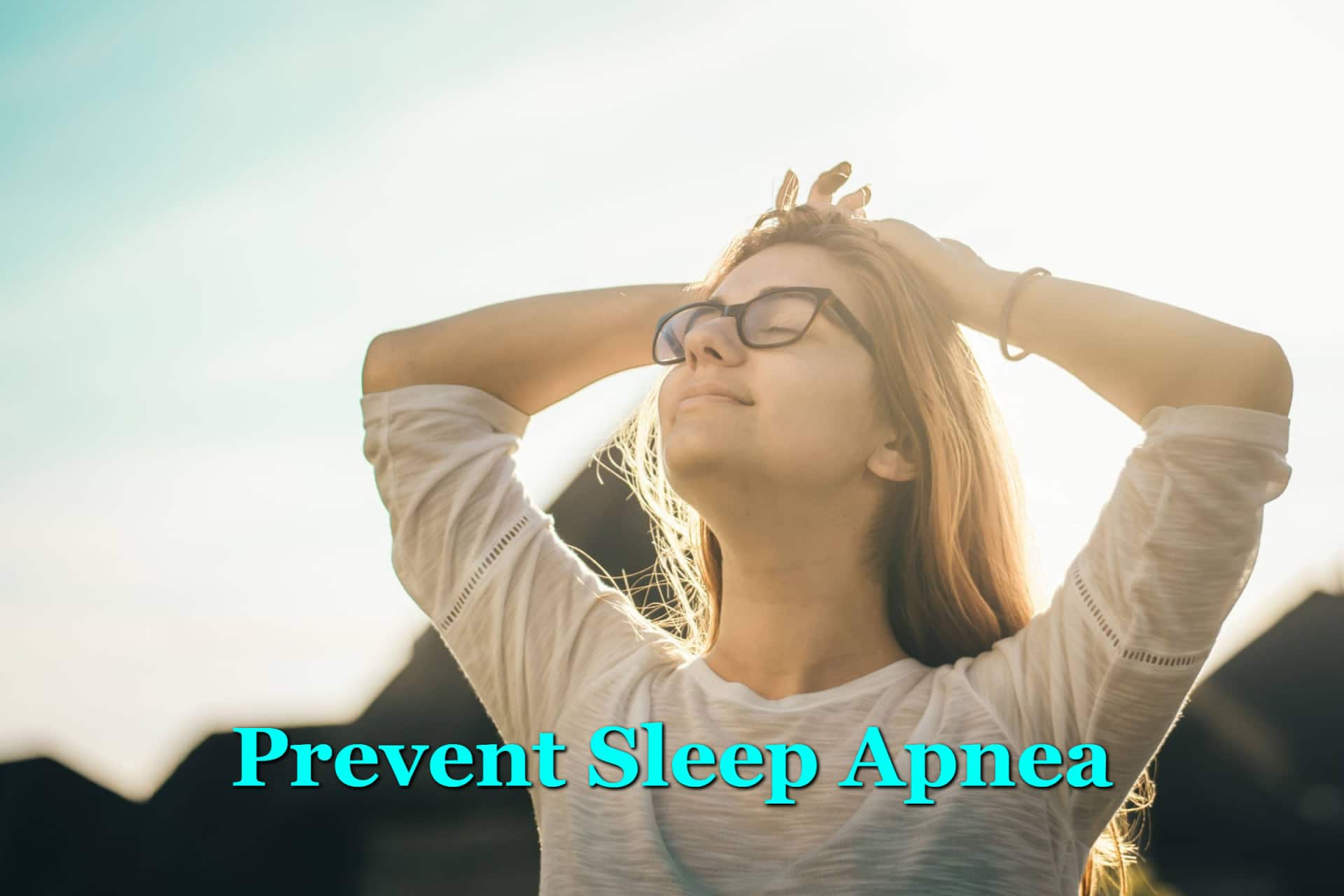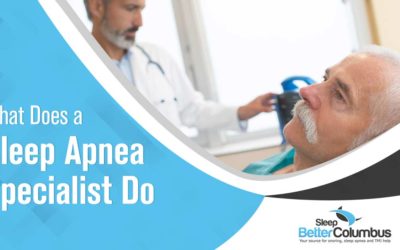If you received a diagnosis of sleep apnea, you might wonder ‘can sleep apnea be cured?’ This form of sleep disordered breathing affects millions of adults around the world. This translates into roughly 1 in 5 adults. Sleep apnea contributes to serious, life shortening health issues and doubles your risk of heart disease. Your diagnosis might have you feeling pretty overwhelmed. But here’s the good news. Sleep apnea is easily treatable! And often can even be cured.
What is Sleep Apnea?
Sleep apnea is a condition in which breathing stops and starts several times an hour during sleep. These pauses in breathing can last anywhere from 5 seconds to several minutes. In mild cases breathing might stop as few as 5-15 times an hour. In more extreme cases these pauses can occur 30 or more times an hour. These pauses in breathing cause the blood oxygen levels to drop, triggering you to wake up.
These frequent sleep disruptions cause a lot of side effects. Symptoms may include:
- Sore or dry throat
- Loud snoring
- Choking or gasping during sleep
- Excessive daytime sleepiness
- Morning headaches
- Difficulty sleeping
- Trouble focusing or concentrating
- Mood changes, especially depression and irritability
- Low libido
Snoring is the most easily recognized symptom but many of the others are easily missed. Many sufferers self-diagnose their symptoms as other issues. Researchers estimate that as many as 80 percent of cases go undiagnosed. The other 20 percent only seek medical advice after their apnea causes a major health event or their partner complains.
What Causes Sleep Apnea?
There are two types of sleep apnea. With obstructive sleep apnea the airway is partially or completely blocked. This obstruction is usually due to soft palate collapse. During sleep the soft tissues of the neck and throat relax, but with OSA they relax too much and close off the airway. Obstructive sleep apnea is the most common.
The other type of sleep apnea is central sleep apnea. This type is rare. With central sleep apnea breathing pauses because the brain fails to send proper signals to the body to continue breathing. Usually, this is due to some neurological defect or injury such as a serious head injury or stroke.
Can Sleep Apnea be Cured?
Yes! Many patients who have sleep apnea are able to control their symptoms or eliminate them. It is important to note that sleep apnea is a multifaceted health issue. You may need to use more than one of the methods below to cure your sleep apnea.
Maintain a Healthy Weight
Being overweight or obese is a common cause of obstructive sleep apnea. If you are overweight, your doctor will likely recommend that you lose a few pounds. This is especially important if you carry a lot of your weight around your midsection. Carrying extra weight around your middle puts strain on your heart. This strain contributes to many risk factors for sleep apnea. Extra weight around the neck and throat also make soft palate collapse more likely. Losing weight will take the strain off you of your heart, reducing your other risk factors. It will also help prevent soft palate collapse.
It is important to know that losing weight isn’t a permanent fix. You will need to keep the weight off too. Losing weight can cure your sleep apnea, but if you gain it back your symptoms may return.
Exercise
This may seem like a given, considering that exercise plays a key role in weight loss. But, exercise does a lot more than just help you maintain a healthy weight. People suffering from sleep apnea often complain of fatigue and frequent sleep disturbances. Regular exercise helps to strengthen your heart and lungs, improving your blood oxygen levels. A strong circulatory system ensures your body can meet its oxygen needs. Better oxygenation of the blood means fewer symptoms. Workouts that focus on breath control are especially helpful, such as walking, running, and yoga.
Improve Sleep Habits
Some sufferers only have difficulty breathing in certain sleeping positions. Usually the position that causes the most trouble is sleeping on your back. Side-sleeping helps prevent airway blockages from occurring. There are wedges and other sleep products that help discourage back-sleeping. These products can help train you to sleep on your side, preventing soft palate collapse. This may not be effective for people with more severe cases of obstructive sleep apnea.
Sleeping at an incline can also help, especially for those who struggle to sleep on their side. Raising your head about 60 degrees during sleep will reduce symptoms. This is because it shifts your abdominal weight down away from your chest and neck. This makes breathing easier but also helps to prevent soft palate collapse. You can achieve this with a wedge, body pillows, sleeping in a recliner, or raising the head of your bed.
Lifestyle Changes
Healthy lifestyle changes will help to reduce your weight and other risk factors. But there are other lifestyle changes that can help cure your sleep apnea.
- Quit Smoking – Smoking causes swelling in the upper airways, making them narrower. A narrower airway is more prone to collapse or obstruction. Quitting will reduce this swelling.
- Avoid Alcohol – Drinking alcohol, especially before bed, relaxes the muscles of the throat. This increases the likelihood of snoring and airway collapse.
- Allergy Medications – Nasal decongestants like allergy medications can help reduce swelling in the airways, improving airflow.
- Use a Humidifier – Dry air can irritate your airway, causing swelling. A good humidifier will reduce this irritation and swelling.
Sleep Apnea Therapy
Sleep apnea therapy consists of using devices such as a CPAP or oral device. A CPAP uses positive air pressure to keep the airway from collapsing during sleep. This is the go-to treatment option prescribed by most doctors. It is an effective treatment and works for many patients.
An alternative to the traditional CPAP is the oral appliance. Oral appliances fit much like a sports mouthguard. An oral appliance shifts the lower jaw forward to prevent soft palate collapse. Because it fits inside the mouth an oral appliance is much more comfortable and less restrictive than a CPAP. Many patients find that they have greater success complying with their prescribed therapy. Better compliance means better sleep. With a custom fit oral appliance, like the ones available through Sleep Better Columbus, you can be certain you’ll have a comfortable fit.
Seek Medical Advice
The methods mentioned above are easy to implement. However, sleep apnea is a serious condition. You should consult with your doctor before making any changes to your prescribed therapy. Many of the symptoms of sleep apnea are easy to miss. Without proper monitoring your condition may not be as well controlled as you think. It is important to follow up with your doctor to ensure your condition continues to improve.




